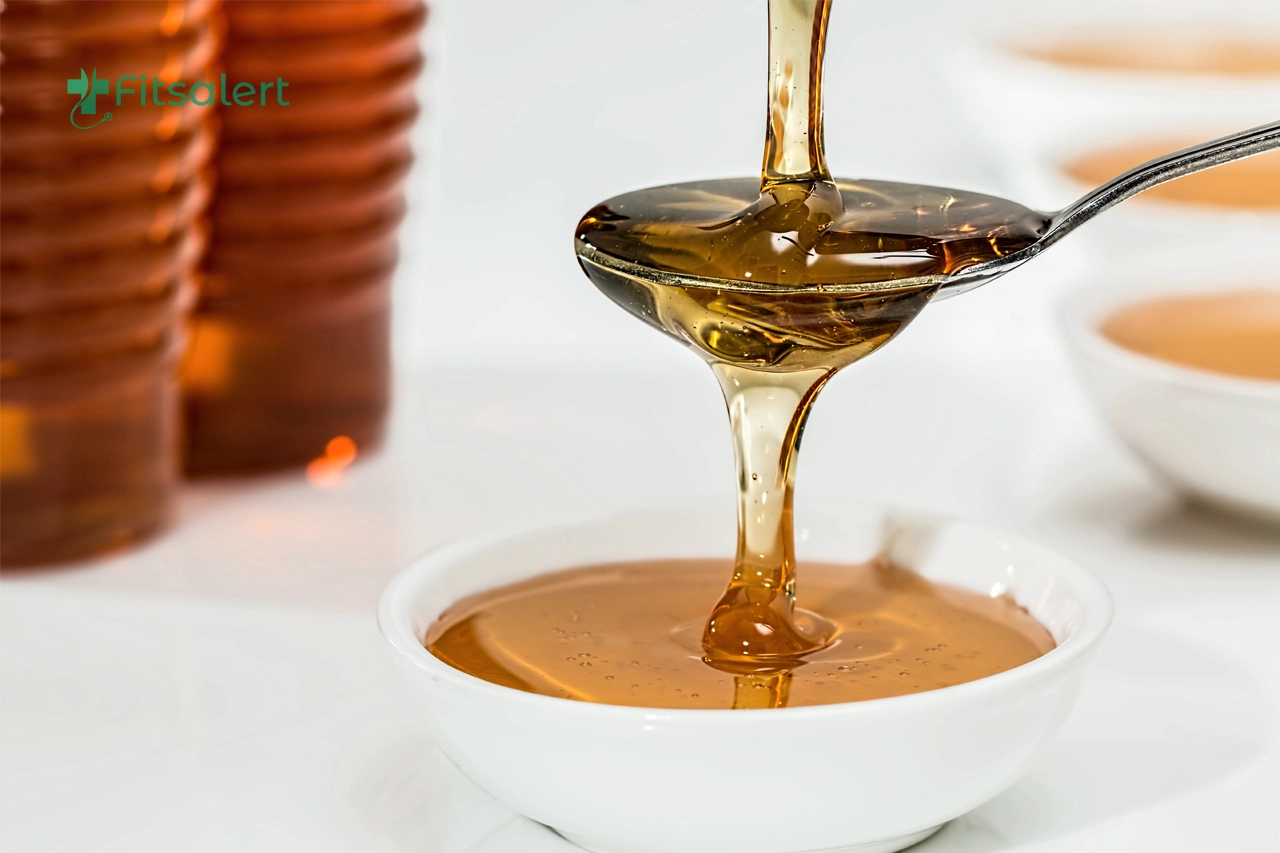It’s essential for individuals with diabetes to carefully monitor their sugar consumption. While honey is often used as a sweetener in coffee, tea, and baking, its consumption should be approached with caution. Those with type 2 diabetes must carefully monitor their carbohydrate and sugar consumption to avoid blood sugar spikes.
However, if blood sugar levels are well-regulated, moderate honey consumption may be acceptable. Honey possesses anti-inflammatory and antioxidant properties that could potentially mitigate diabetes-related complications. Therefore, while honey can be enjoyed in moderation, individuals with diabetes need to maintain awareness of their overall sugar intake.
What is Honey?
Honey, a viscous and golden substance, is created by honeybees and certain other insects like bumblebees and wasps. It originates from the nectar found within flowers, which bees gather and store in their stomachs before returning to the hive.
Nectar primarily consists of sucrose (sugar), water, and various other components, constituting approximately 80% carbohydrate and 20% water. Bees transform this nectar into honey through a process of ingestion and regurgitation, which removes excess water. The resulting honey is then stored in honeycombs to serve as an energy source during times of scarcity, such as winter.
Despite being a natural sweetener, honey tends to have a sweeter taste compared to regular table sugar. According to data from the United States Department of Agriculture (USDA), one tablespoon of raw honey contains roughly 60 calories and 17 grams of carbohydrates.
In addition to its sweet taste, honey also boasts a range of vitamins and minerals, including iron, vitamin C, folate, magnesium, potassium, and calcium. Furthermore, honey serves as an antioxidant, aiding in the prevention and deceleration of cell damage.
Can Honey be Used as the Alternative for Sugar?
Typically, honey is a popular alternative to sugar in various recipes. However, due to its sweeter taste, it’s not a direct substitution. When baking, individuals often replace 1 cup of sugar with approximately 1/2 to 2/3 cup of honey.
For individuals managing type 2 diabetes, it’s essential to limit the intake of sweeteners like honey and sugar. Both can lead to spikes in blood sugar levels, potentially accelerating the progression of type 2 diabetes.
Effect of Honey on Blood Sugar?
Since honey is a natural source of sugar and carbohydrates, it’s expected to increase your blood sugar levels. Like other sweeteners, it’s advisable to consume honey in moderation.
Effect of Honey on Type 2 Diabetes?
While honey might elevate insulin levels and potentially reduce inflammation, current research doesn’t provide conclusive evidence supporting its preventive benefits for diabetes.
Risk of Honey in Type 2 Diabetes
Consuming honey, especially for individuals with diabetes, may pose certain risks:
- Blood sugar spikes: Honey can impact blood sugar levels, prompting doctors to advise avoiding it and other sweeteners until diabetes is properly managed.
- Added sugar content: Processed honey bought from stores may contain additional sugar or syrup, affecting blood sugar differently.
- Risk of infections: Raw honey, unpasteurized and consumed by individuals with compromised immune systems or pregnant individuals, can lead to dangerous infections.
Honey is sweeter than sugar, requiring less substitution. It should be consumed in moderation, with consultation from a healthcare professional before use as a sweetener.
For those with well-managed diabetes seeking to incorporate honey into their diet, opting for pure, organic, or raw natural honey is advisable, excluding pregnant or immunocompromised individuals. These types typically lack added sugars, making them safer choices.
Benefits of Honey in Type 2 Diabetes
Consuming honey or using it as a sugar substitute may offer certain potential benefits for individuals with diabetes:
- Antioxidants: Honey is rich in antioxidants, which play a vital role in safeguarding cells against damage.
- Anti-inflammatory properties: Honey’s anti-inflammatory properties could potentially alleviate diabetes-related complications. Inflammation can contribute to insulin resistance, but honey’s benefits in this regard are primarily observed in wound-healing contexts.
- Gut health: The oligosaccharides found in honey may promote a healthy gut microbiome.
It’s essential to consult with healthcare professionals before incorporating honey into a diabetic diet.
Final Thoughts
Honey, being a natural sweetener, can impact insulin levels. However, like all sweeteners, it’s crucial to consume it in moderation.
Before incorporating honey into your diet, consult with a healthcare provider. It’s important to note that honey may not be suitable for everyone, especially those advised to manage their blood sugar levels.










